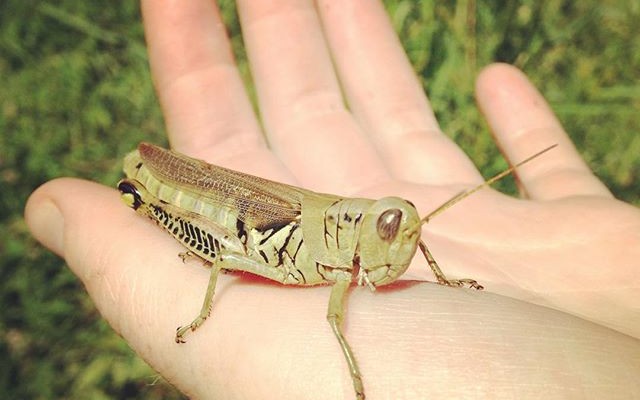
I shrink as of late when it comes to publicly talking about my take on the ethics of eating. I feel my stance is a moderate and sensible one, and not one I am alone in having. But, I live in a non-farming community where most people have the means to make choices that those with more limited income may not be able to. Some folks in my neck of the woods have a different perspective on food and I don’t always feel comfortable speaking about it in their presence. Since I moved from the city, I found myself in the midst of more people who generally feel that raising animals on a farm with the intention of feeding people their eggs, milk or meat is something they cannot comprehend doing because, well…they just love animals too much.
Once upon a time, when people would tell me they love animals too much to raise them for food, I’d fume. How dare you, I’d think. I love my animals and I have eaten a few of them. It hurt like hell when it came time to do the deed but because I went through with it, it doesn’t mean that I loved them any less or am a bad person. It wounded me deeply to think that there were people that I knew and respected looking at me and other farmer friends of mine through a lens of disgust when I felt as though we were doing the right thing by being more intimately involved in the production of food. For me, being an omnivore was a conscious decision based on real experience and not anecdotes. That was my attitude for a long time. We’re living it, how dare you judge us! I took it as a slight. But, I’ve tempered those feelings a great deal because it’s not about me and I shouldn’t take it personally. How could people who haven’t experienced what I have understand how I think and feel? Aren’t we all just trying to make the choices that feel right to us, in the context of our own lives?
I encounter many people who abstain from animal products completely. I truly respect that decision. It makes sense if you feel uncomfortable with something, to avoid it altogether. Or, at least until you can better understand all of the nuances involved to where you may make fully informed choices. It’s a minefield out there and big companies deliberately make it difficult to navigate the market so that their products don’t come under tough scrutiny. I don’t think there is a wrong way to grow as an eater, as long as you are growing and learning as you go. My choice to farm livestock and vegetables keeps me engaged and learning. It differs from those who abstain in a few ways, which to my mind are no less ethical and sound.
Firstly, my decision to become a farmer has everything to do with making available an alternative to the supermarket or the drive-thru. I think it’s safe to say that all of my farmer friends also feel this way. We don’t do it for the money (we make very little) or for the fanfare (we don’t get much of that, except maybe from our CSA members), we do it because we want there to be a better choice out there. On a more spiritual level, it puts us dead center in the middle of the cycles of life and death and makes us feel undeniably part of something greater than ourselves. If we get to help foster more life than we need to harvest in order to feed people and wildlife and farmlife in that process, all the better. The person I am today after 4 years of farming is more kind, more thoughtful and has a deeper understanding of nature and all of her beauty and complexity than I ever had before. But it didn’t just come from growing vegetables in compost. It came from witnessing the theatrical display of life and death playing out before my own eyes. It has been humbling and transformative and I wouldn’t trade it for all of the avocados in the world. I no longer feel that death is the thing to be avoided at all cost. What I do fear is suppression, lack of diversity and complete disconnect from nature and I’m willing to dedicate my life to countering it in my small way.
The one thing that seems to get lost in the shuffle the most often when the discussion of ethical eating comes up is the question of the treatment of the people who grow, harvest and transport the food that we all eat. I have met too few people who care just as much for their fellow man as for cows and chickens and that makes me truly sad. Are women and men not living creatures too? We’ve reached a point as a culture where we see humanity as a villain and that adult humans deserve whatever treatment they get, because they got there based on their own choices. Tell that to the countless women who are assaulted on strawberry farms and then further insulted by third world wages, if any wages at all. Tell that to the farmhand on the almond grove with lung cancer from breathing in pesticides and fungicides with no health insurance or means to get adequate medical treatment in this country. They matter too. Our kindness and desire to reduce the suffering of living things shouldn’t be limited to cute animals. We all make choices that lead somewhere in our lives that we don’t want to be. But the underpaid and mistreated people that help to grow our food don’t have the means to escape from their situation. To ignore that their suffering feeds the chain so that we can get cheap and abundant food with no real attention paid to seasonality is unethical, so I hope people from all sides of this discussion take their welfare into consideration when they shop, too.
Of course, the best way to avoid causing undue suffering to animals and people alike is so grow strong relationships with farmers in your region. Becoming a CSA member to a farm where you can pick up on site or visit encourages transparency. Small farms can’t hide bad practices easily so this way you can experience first hand how your food has been grown. Support those farms and their growth and development toward even better practices. Farms can’t improve without your support. It’s important to keep your expectations in line with regional and seasonal realities too. You won’t be able to stock up on lemons and coconut oil and avocados but if you’re willing to try to new things, you can eat really well with seasonal ingredients grown by people in your own community.
Most of us are all trying to do the best we can. Even if it doesn’t seem like it sometimes. Even if you don’t understand where someone is coming from, it’s worth it to step back and try to hear each other and maybe meet people where they are before questioning their ethics and character. This is a rule that can be applied to any manner of situations. It’s my hope that the folks that are choosing to abstain will view small farmers as allies in the fight against horrific farm practices and will adopt an attitude of openness and lack of judgement. Because whether you realize it or not, together we are the best chance at creating a better world for all living things.

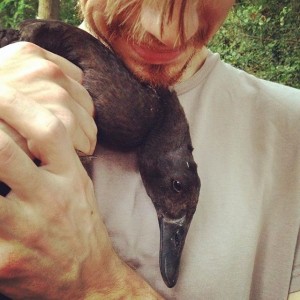
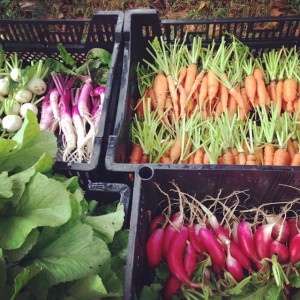
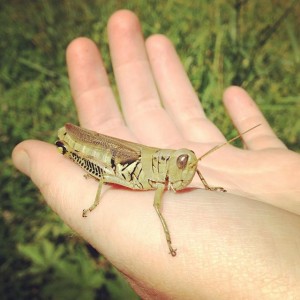
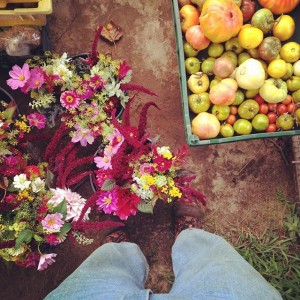
meg.. i will say it a thousand times over, You are a true inspiration.
In Japanese, the phrase “itadakimasu,” is said before eating a meal. The phrase simply means “I will eat this meal with gratitude,” but this gratitude is both to the person who prepared it, and also to the plants and animals who will soon be consumed. When we grow are own food, via farming or gardening, with this consciousness of gratitude, we can come to learn our place in the overall scheme of creation; life, death, and life. The Tao of the Great Everything, right?
Right to the heart of it! Thank you, Daniel!